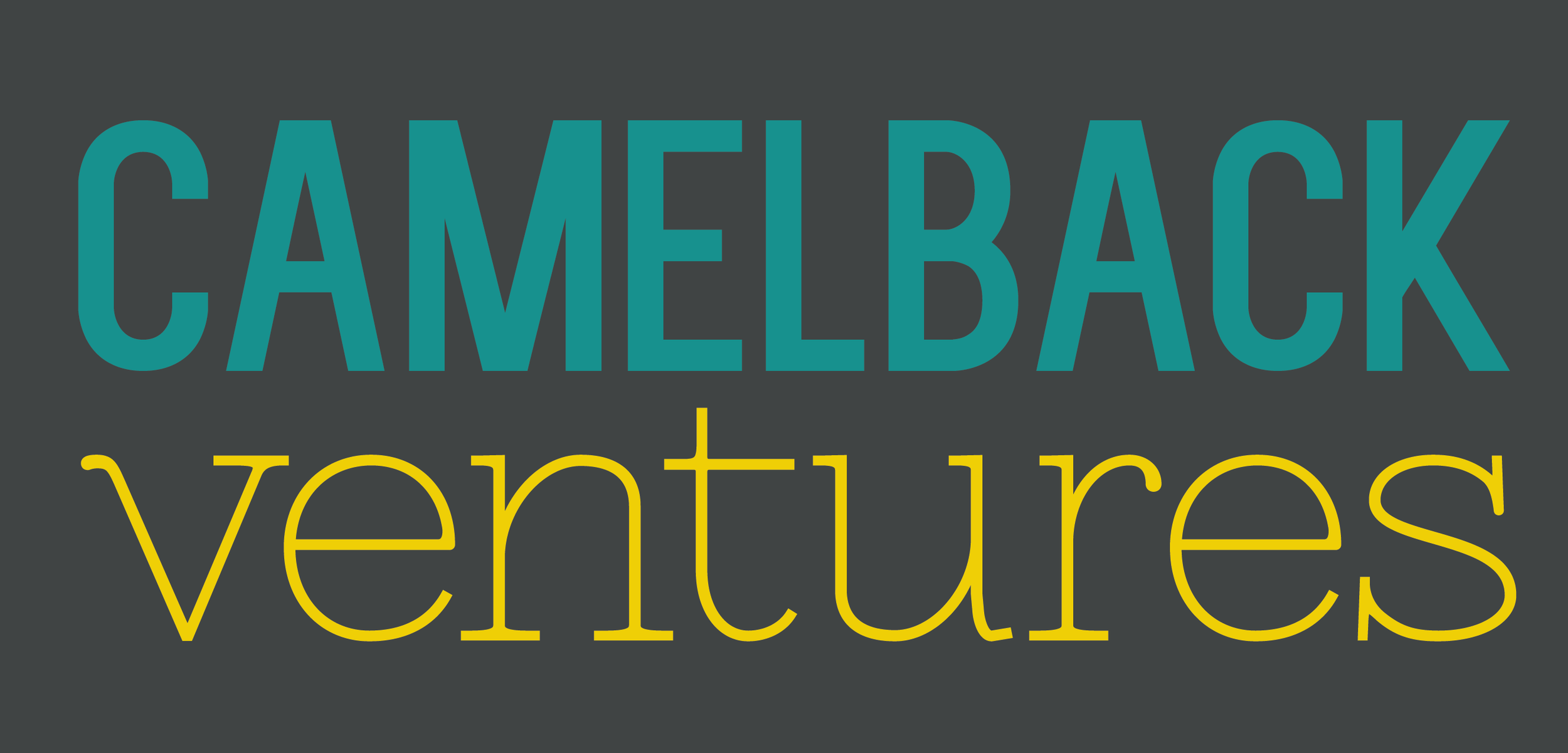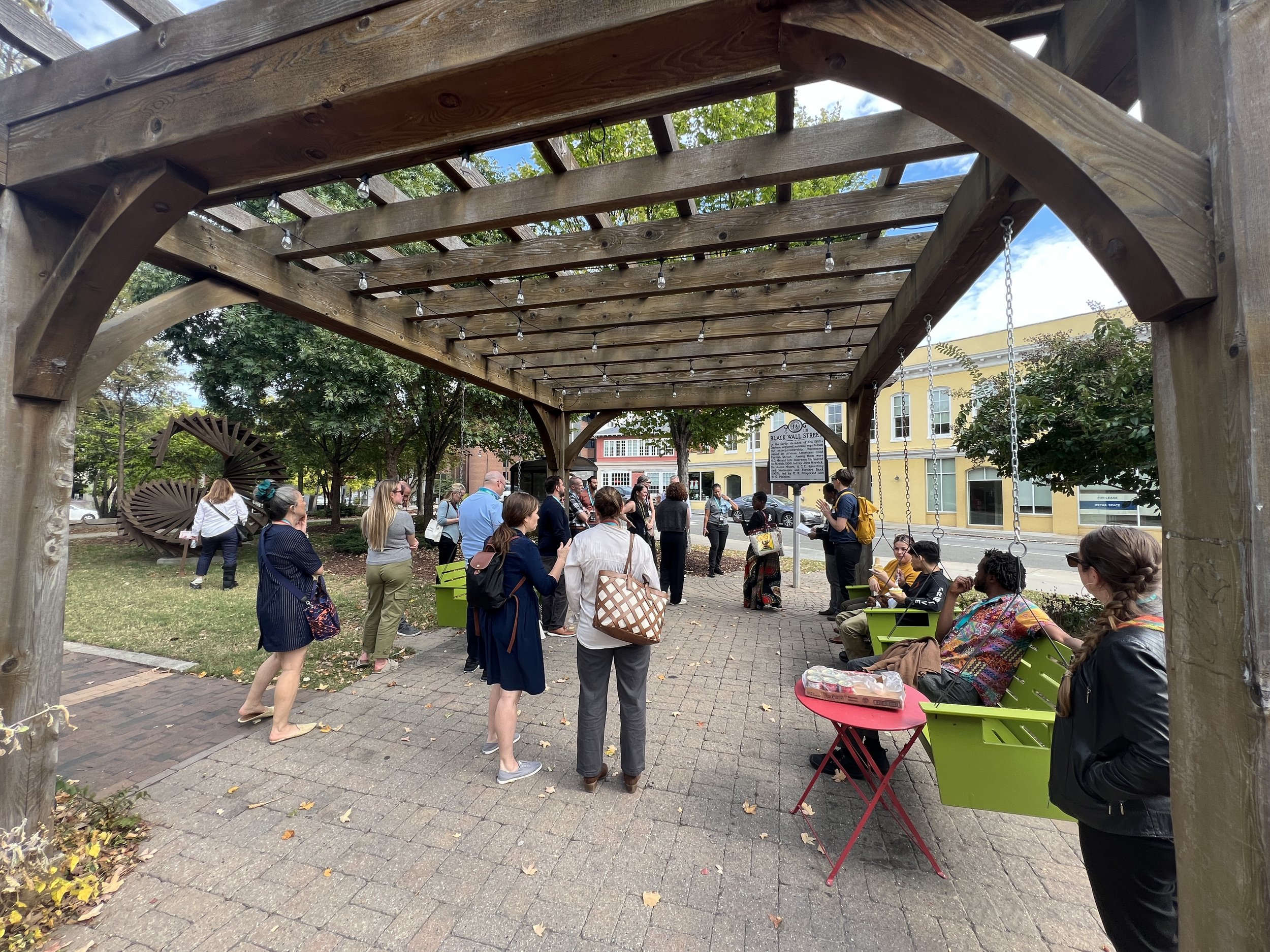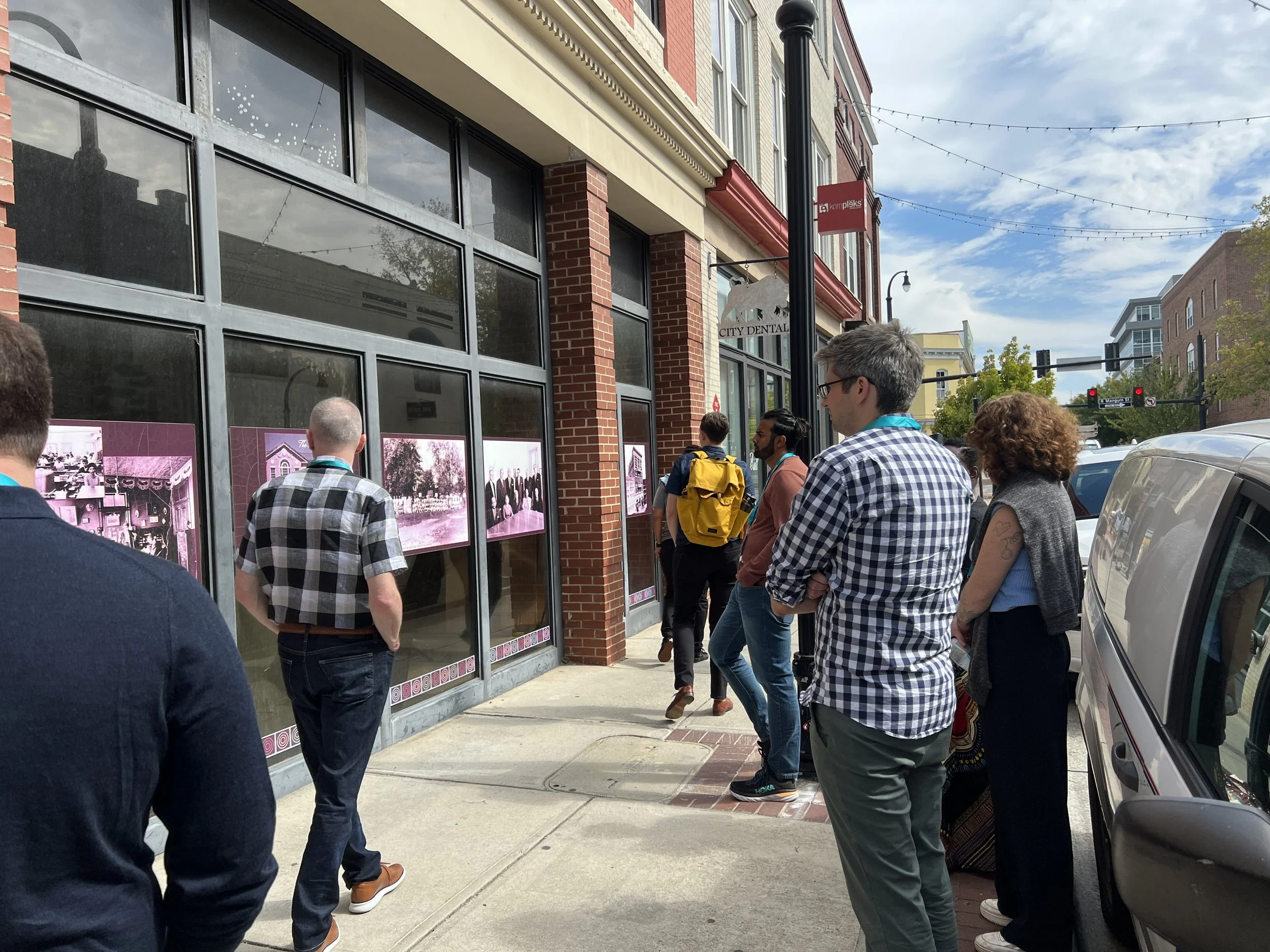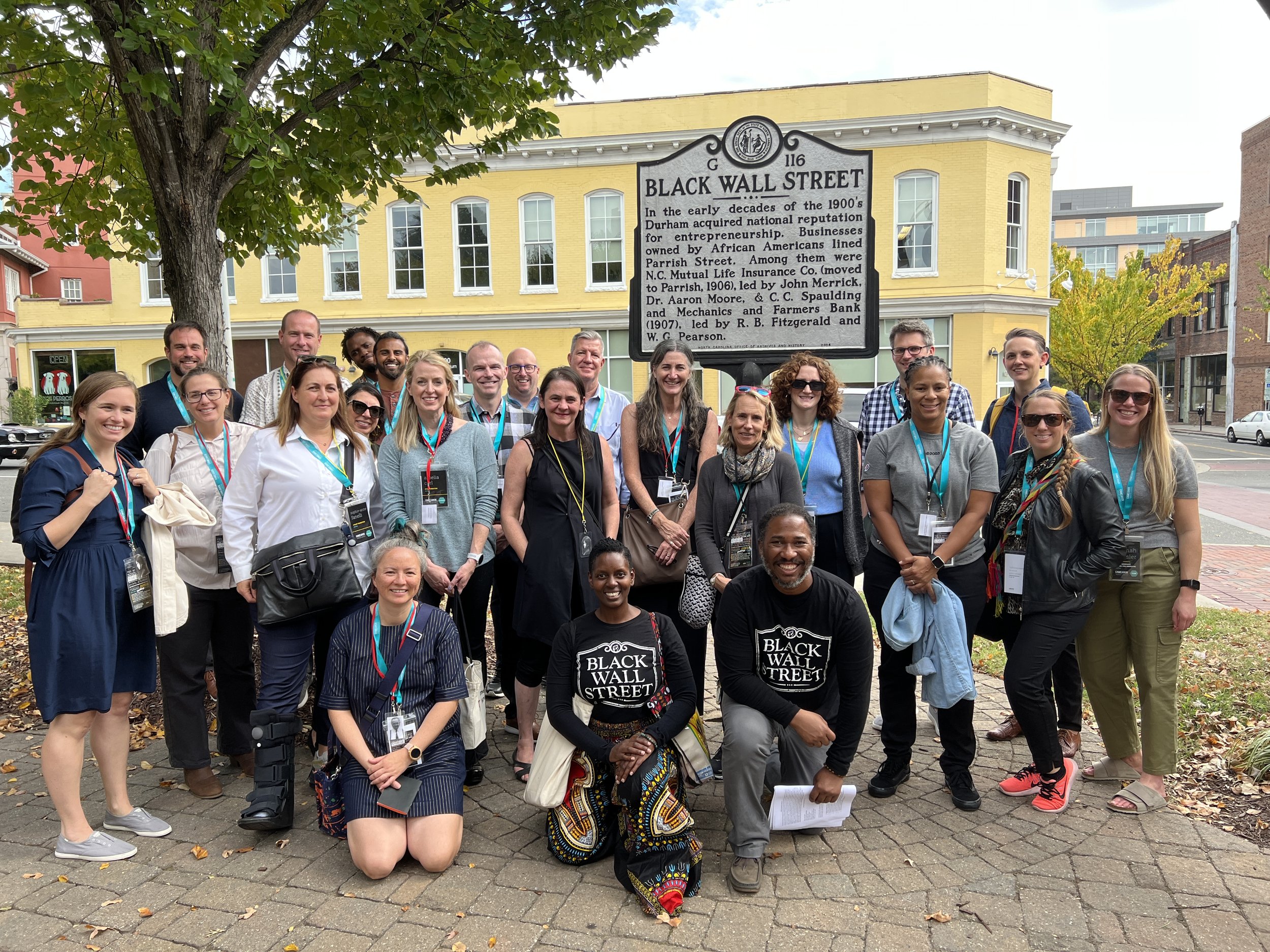Meet the Capital Collaborators: Jeremy Grunin + Grunin Foundation
Why did you join the Capital Collaborative by Camelback Ventures – what were you hoping to get from this experience?
I have spent the better part of the last three years, since the murder of George Floyd, immersed in trainings filled with folks representing many different races. In many of these settings, I have felt it is best to listen and absorb other people's journeys and points of view. Having done this work, I felt that it was time to really be able to focus on sharpening my own narrative and point of view.I believed, and still believe, the Capital Collaborative Cohort would be the most appropriate setting in which to do this next level of work.
What session or moment during the Capital Collaborative changed one of your beliefs?
Our walk down Black Wall Street in Durham, NC at Summit 1 was both powerful and eye opening. In yet another moment of learning, I had not previously known there were other communities similar to Tulsa, Oklahoma, which has become such a vivid example of our regression from racial equity. Seeing the bank where it all started, and now empty locations where statues once stood, is something I'll surely never forget.
In what ways do you believe philanthropy needs to change?
I could go on for pages on this question, unfortunately. As a sector, we continue to give lip service to things like "Trust Based Philanthropy," "Multi Year Grants," "Minimal Grant Application Processes," and our desire to invest in "Boots on the Ground" or "Grassroots" organizations. We continue to center power over equity. We fill our Boards with friends and people that are "like minded," and we continue to deliver solutions to historically under-resourced communities who don't need our solutions; they need our money and our commitment to supporting solutions they have already generated themselves.
Capital Collaborative Summit 1 in Durham, North Carolina
What next steps are you taking to shift power in funding?
Internally, we are in the midst of a process to find a consultant to work through a new strategic plan that truly centers equity and is reflective of our stated anti-racist goals. Top on our list of priorities in this process is a new mission statement that doesn't reflect what we'll do "for" our non-profits; rather, how we can best provide support for the efforts where they articulate needing it. We also are aware that our stated focus areas (Arts, Education, and Healthcare) are merely opportunities for exit ramps to say "no" to organizations because they don’t “fit,” rather than committing to supporting holistic approaches to root causes. One cannot work in Education and Healthcare specifically without also addressing food security, homelessness, social justice, policing, and so many other root cause issues.
On a personal note, I am working with my coaches to operate more tactically on the boards on which I serve, to recruit more accomplices and co-conspirators in addressing representation inequities.
The Capital Collaborative by Camelback Ventures works with White funders and social impact investors who want to deepen their individual and organizational commitment to racial and gender equity in philanthropy — but may not know how. You can learn more about how to get involved by submitting an interest form for the Capital Collaborative’s next cohort or signing up for the newsletter.




